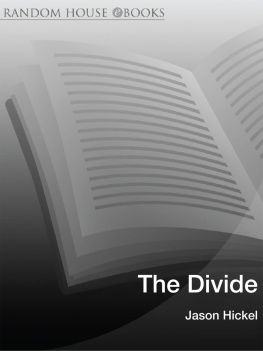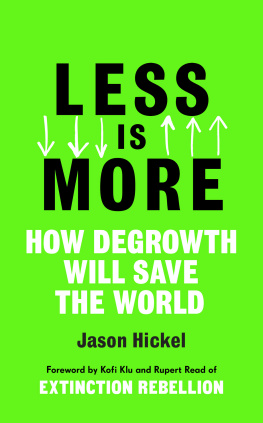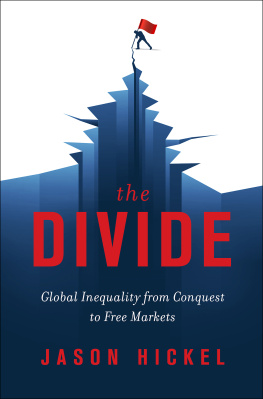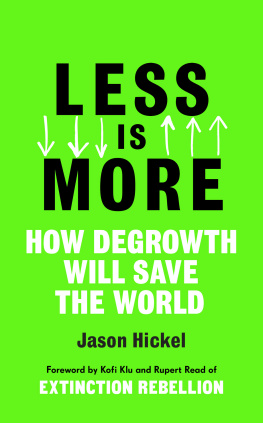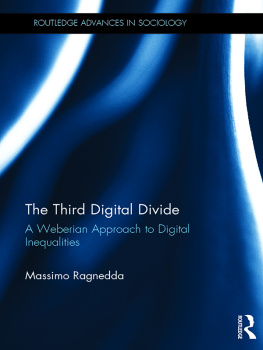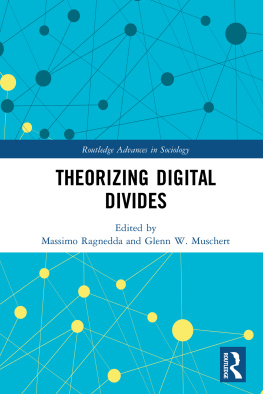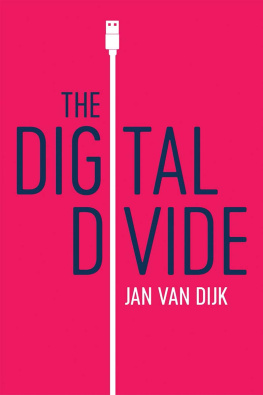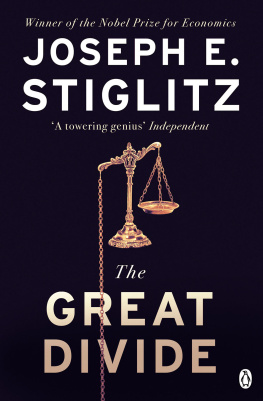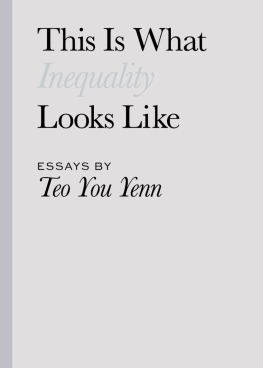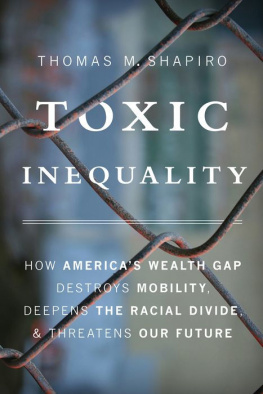Jason Hickel - The Divide: A Brief Guide to Global Inequality and its Solutions
Here you can read online Jason Hickel - The Divide: A Brief Guide to Global Inequality and its Solutions full text of the book (entire story) in english for free. Download pdf and epub, get meaning, cover and reviews about this ebook. year: 2017, publisher: Heinemann, genre: Politics. Description of the work, (preface) as well as reviews are available. Best literature library LitArk.com created for fans of good reading and offers a wide selection of genres:
Romance novel
Science fiction
Adventure
Detective
Science
History
Home and family
Prose
Art
Politics
Computer
Non-fiction
Religion
Business
Children
Humor
Choose a favorite category and find really read worthwhile books. Enjoy immersion in the world of imagination, feel the emotions of the characters or learn something new for yourself, make an fascinating discovery.
- Book:The Divide: A Brief Guide to Global Inequality and its Solutions
- Author:
- Publisher:Heinemann
- Genre:
- Year:2017
- Rating:5 / 5
- Favourites:Add to favourites
- Your mark:
- 100
- 1
- 2
- 3
- 4
- 5
The Divide: A Brief Guide to Global Inequality and its Solutions: summary, description and annotation
We offer to read an annotation, description, summary or preface (depends on what the author of the book "The Divide: A Brief Guide to Global Inequality and its Solutions" wrote himself). If you haven't found the necessary information about the book — write in the comments, we will try to find it.
The Divide: A Brief Guide to Global Inequality and its Solutions — read online for free the complete book (whole text) full work
Below is the text of the book, divided by pages. System saving the place of the last page read, allows you to conveniently read the book "The Divide: A Brief Guide to Global Inequality and its Solutions" online for free, without having to search again every time where you left off. Put a bookmark, and you can go to the page where you finished reading at any time.
Font size:
Interval:
Bookmark:

This ebook is copyright material and must not be copied, reproduced, transferred, distributed, leased, licensed or publicly performed or used in any way except as specifically permitted in writing by the publishers, as allowed under the terms and conditions under which it was purchased or as strictly permitted by applicable copyright law. Any unauthorized distribution or use of this text may be a direct infringement of the authors and publishers rights and those responsible may be liable in law accordingly.
Epub ISBN: 9781473539273
Version 1.0
Published by William Heinemann 2017
1 3 5 7 9 10 8 6 4 2
Copyright Jason Hickel 2017
Jason Hickel has asserted his right to be identified as the author of this Work in accordance with the Copyright, Designs and Patents Act 1988.
First published by William Heinemann in 2017
William Heinemann
The Penguin Random House Group Limited
20 Vauxhall Bridge Road, London, SW1V 2SA
www.penguin.co.uk

William Heinemann is part of the Penguin Random House group of companies whose addresses can be found at global.penguinrandomhouse.com
A CIP catalogue record for this book is available from the British Library
ISBN 9781785151125
for the wretched of the earth
I grew up in Swaziland a tiny, landlocked country near the eastern seaboard of southern Africa. It was a happy childhood, in many ways. As a little boy I ran around barefoot through sandy grassland with my friends, unhindered by fences or walls. When the monsoon rains hit we would sail tiny bark boats through the dongas, welcoming the wet. We climbed trees and plucked mangoes and lychees and guavas to snack on whenever we grew hungry. During lazy afternoons I would sometimes wander up the hill from our little bungalow along the dirt track towards the clinic where my parents worked as doctors. I still remember the cool of the polished concrete floors and the breezy shade of the courtyard. But most of all I remember the queue the queue of patients winding out of the door, some sitting on wooden benches, others on grass mats, waiting to be seen. To me, it seemed that the queue never ended.
As I grew older, I began to learn about things like TB and malaria, typhoid and bilharzia, malnutrition and kwashiorkor scary words that were nonetheless familiar and well worn among our family. Later still I learned that we were living in the middle of the worst epidemic of HIV/AIDS anywhere in the world. I learned that people were suffering and dying of diseases that could easily be cured, prevented or managed in richer countries a fact that to me seemed unspeakably horrible. And I learned about poverty. Many of my friends came from families that scraped together meagre livelihoods on subsistence farms subject to the constant caprice of drought, or who struggled to find work while living in makeshift shelters in the slums outside Manzini, the countrys biggest city.
They were not alone. Today, some 4.3 billion people more than 60 per cent of the worlds population live in debilitating poverty, struggling to survive on less than the equivalent of $5 per day. Half do not have access to enough food. And these numbers have been growing steadily over the past few decades. Meanwhile, the wealth of the very richest is piling up to levels unprecedented in human history. As I write this, it has just been announced that the eight richest men in the world have as much wealth between them as the poorest half of the worlds population combined.
We can trace out the shape of global inequality by looking at the distribution of income and wealth among individuals, as most analysts have done. But we can get an even clearer picture by looking at the divide between different regions of the world. In 2000, Americans enjoyed an average income roughly nine times higher than their counterparts in Latin America, twenty-one times higher than people in the Middle East and North Africa, fifty-two times higher than sub-Saharan Africans and no less than seventy-three times higher than South Asians. And here, too, the numbers have been getting worse: the gap between the real per capita incomes of the global North and the global South has roughly tripled in size since 1960.
*
It is easy to assume that the divide between rich countries and poor countries has always existed; that it is a natural feature of the world. Indeed, the metaphor of the divide itself may lead us unwittingly to assume that there is a chasm a fundamental discontinuity between the rich world and the poor world, as if they were economic islands disconnected from one another. If you start from this notion, as many scholars have done, explaining the economic differences between the two is simply a matter of looking at internal characteristics.
This notion sits at the centre of the usual story that we are told about global inequality. Development agencies, NGOs and the worlds most powerful governments explain that the plight of poor countries is a technical problem one that can be solved by adopting the right institutions and the right economic policies, by working hard and accepting a bit of help. If only poor countries would follow the advice of experts from agencies like the World Bank, they would gradually leave poverty behind, closing the divide between the poor and the rich. It is a familiar story, and a comforting one. It is one that we have all, at one time or another, believed and supported. It maintains an industry worth billions of dollars and an army of NGOs, charities and foundations seeking to end poverty through aid and charity.
But the story is wrong. The idea of a natural divide misleads us from the start. In the year 1500, there was no appreciable difference in incomes and living standards between Europe and the rest of the world. Indeed, we know that people in some regions of the global South were a good deal better off than their counterparts in Europe. And yet their fortunes changed dramatically over the intervening centuries not in spite of one another but because of one another as Western powers roped the rest of the world into a single international economic system.
When we approach it this way, the question becomes less about the traits of rich countries and poor countries although that is, of course, part of it and more about the relationship between them. The divide between rich countries and poor countries isnt natural or inevitable. It has been created. What could have caused one part of the world to rise and the other to fall? How has the pattern of growth and decline been maintained for more than 500 years? Why is inequality getting worse? And why do we not know about it?
*
From time to time I still think back to that queue outside my parents clinic. It remains as vivid in my mind as if it were yesterday. When I do, I am reminded that the story of global inequality is not a matter of numbers and figures and historical events. It is about real lives, real people. It is about the aspirations of communities and nations and social movements over generations, even centuries. It is about the belief, shaken with doubt from time to time but otherwise firm, that another world is possible.
At one of the most frightening times in our history, with inequality at record extremes, demagogues rising and our planets climate beginning to wreak revenge on industrial civilisation, we are more in need of hope than ever. It is only by understanding why the world is the way it is by examining root causes that we will be able to arrive at real, effective solutions and imagine our way into the future. What is certain is that if we are going to solve the great problems of global poverty and inequality, of famine and environmental collapse, the world of tomorrow will have to look very different from the world of today.
Font size:
Interval:
Bookmark:
Similar books «The Divide: A Brief Guide to Global Inequality and its Solutions»
Look at similar books to The Divide: A Brief Guide to Global Inequality and its Solutions. We have selected literature similar in name and meaning in the hope of providing readers with more options to find new, interesting, not yet read works.
Discussion, reviews of the book The Divide: A Brief Guide to Global Inequality and its Solutions and just readers' own opinions. Leave your comments, write what you think about the work, its meaning or the main characters. Specify what exactly you liked and what you didn't like, and why you think so.

